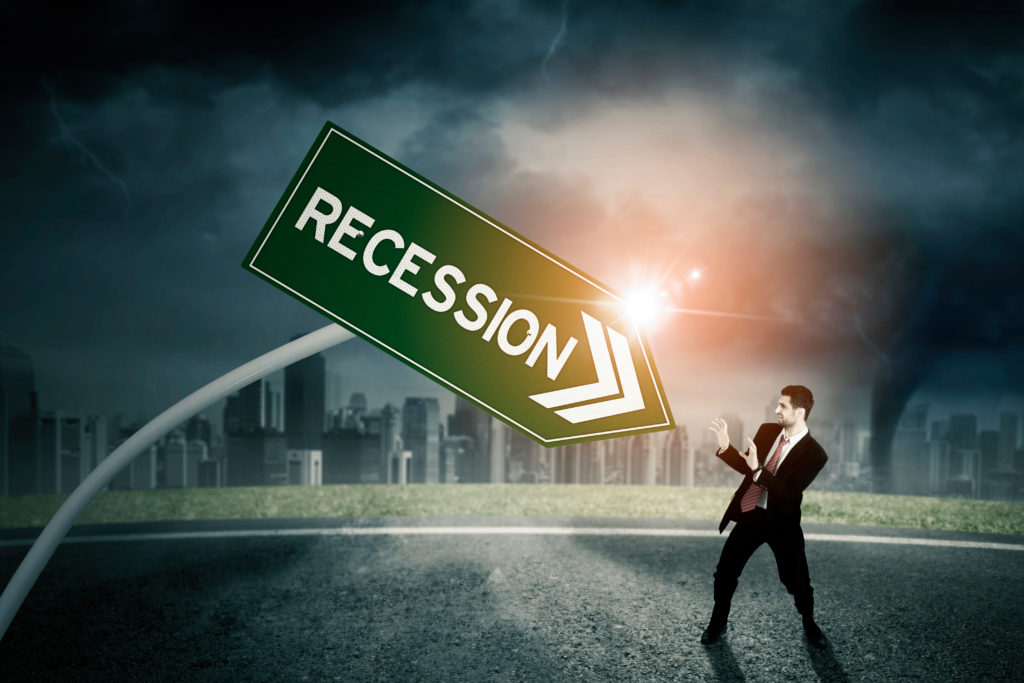“It’s a recession when your neighbor loses his job; it’s a depression when you lose yours.”
Harry Truman knew an economic downturn can devastate real people. How should marketers prepare themselves?
You’ve heard the platitudes. We all have. Recessions are an inevitable part of the business cycle. Boom and bust. Feast and famine. They happen every seven or eight years and a recovery is inevitable.
It’s easy to say. But hard to live through.
And it’s especially hard for marketers who are watching sales numbers fall, dealing with budget cuts, and hearing whispers of layoffs while CFOs bang on their office doors.
As of this specific moment in history (wait, let us check the clock…) most economists agree the USA, along with basically the entire world, is either in a recession or nearing the edge of one. But predictions of the length and severity vary pretty wildly, with words like “mild” and “shallow” often followed by alarms of a “long” “global” “crash.”
So in this three-part series, we want to bring some sanity to the scare tactics. Discuss what marketers are likely to see in the next few months. And help you decide what you should be doing now.
Hold up, just who do we think we are?
If this is your first time here, welcome.
Our Unified Marketing System is used by modern marketers, some of whom we’re proud to call clients. But the system was actually born during the last recession, circa 2008. We noticed a clear gap between our clients who merely slowed and those who truly struggled. And as the tide turned in the summer of 2009, there was a similar delta between the marketers who breathed a sigh of relief and the ones who roared back to life.
Yes, we’re students of the business world. And we’re also boots-on-the-ground, day-in-day-out, in-the-trenches marketers. And both sets of experiences came together to give us a clear view of how to make the most of a recession.
That’s right. We didn’t say “survive” a recession.
We think you can leverage it.
Okay, enough about the past. Let’s get back to today.
Three reasons marketers get confused by recessions.
Recessions cause uncertainty. (And sometimes outright panic!) That’s because few marketers really plan for them. Then, one day, they find themselves facing three perplexing paradoxes:
Lower advertising costs, but fewer leads.
Media platforms will be cutting their prices. In theory, this should make it easy for marketers to drive awareness, MQLs (Marketing Qualified Leads), and ultimately conversion. But lead generation will inevitably decrease, anyway, as households tighten their purse strings. So marketers will be unsure whether to trust one of the major tools in their toolbox.
Revenue? What’s revenue?
Profit equals revenue minus operating expenses, right? And in good times, CEOs love to see revenue going up. But in a recession, all the emphasis seems to be placed on the other end of the scale. Marketers will likely get hit with mandatory budget reductions. That makes their job harder. (And if they have to make decisions about layoffs, that will sap energy and take a devastating emotional toll.)
All those sexy gismos will stop working.
Marketers live on the cutting edge of business. New communication channels. New payment forms. New ways to inspire your team. We eat it up. And if times are good, it all seems to be working. But in a recession, many of those tools will be exposed as unnecessary distractions. And leaders will have to get out their pencils and relearn the basic formulas and processes they were taught in business school.
Have a process. Trust the process. Live the process.
Remember our introductory quote from Harry Truman? What it really means is that people are more than just statistics. Every marketer will have to make tough choices under immense amounts of pressure.
But as long as we all know what to expect, you can approach it calmly, define a process, and express a clear vision for success.
So in the next part of this series, we’ll tackle the practical reality of what the recession is likely to do to the Lifetime Value of a Customer and the Cost to Acquire a customer. And we’ll start to demonstrate how manipulating those fundamental metrics can form the cornerstone of your strategy.

